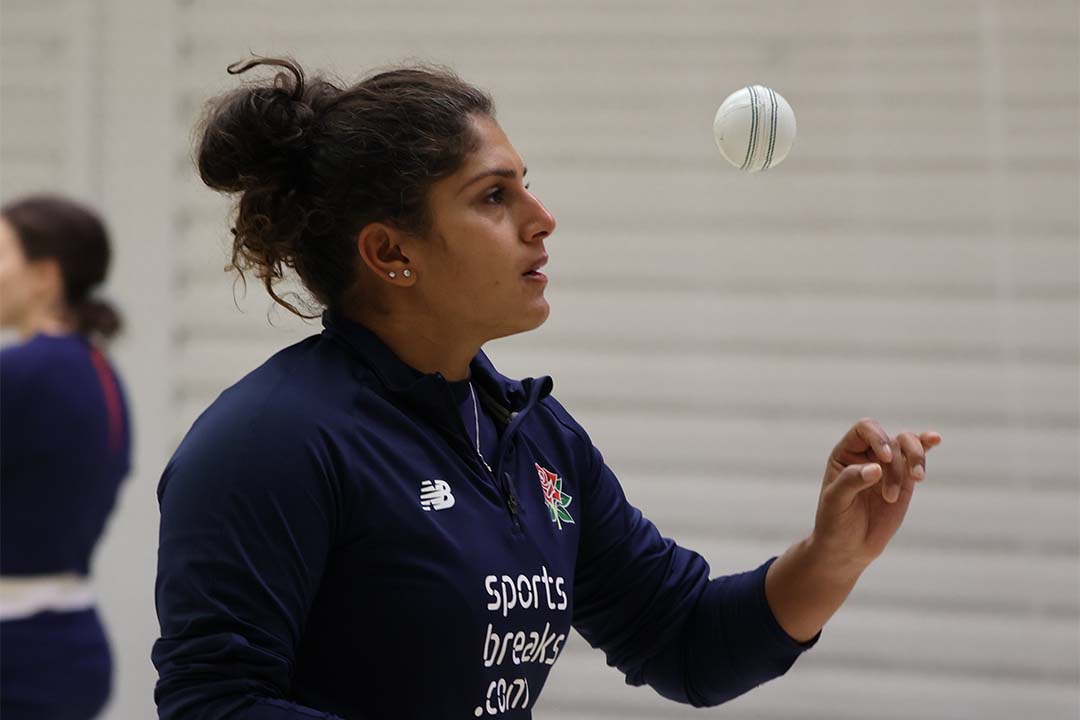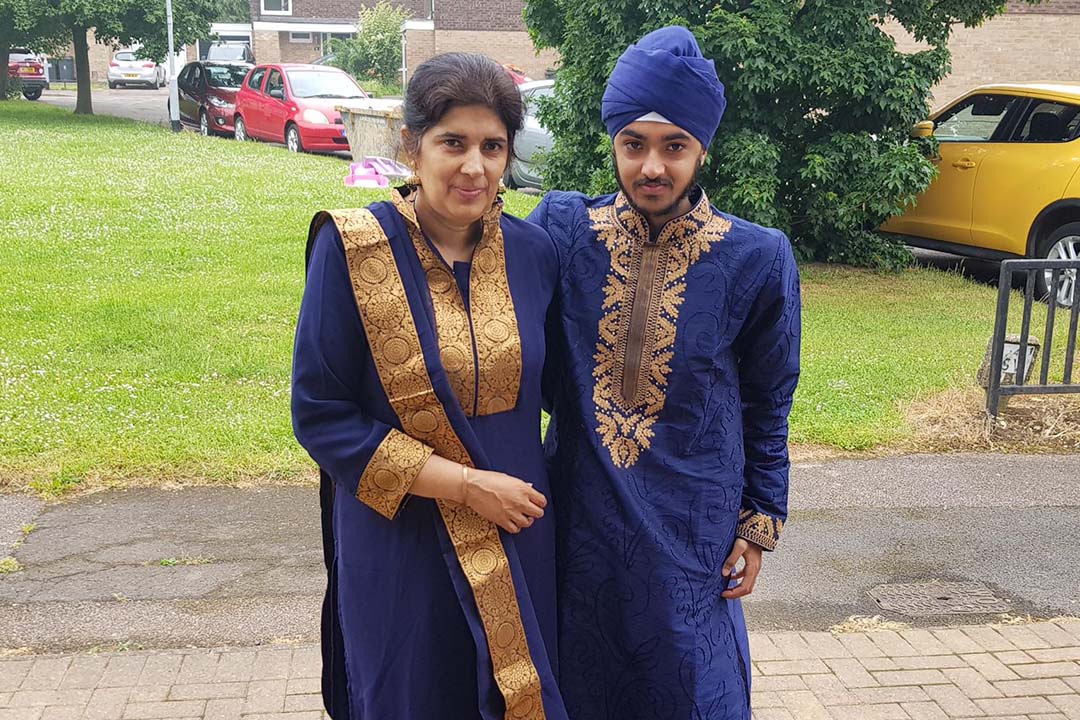Dattani and Bains share their cultural experiences on this auspicious day.
To see more articles, click here
Every year in October or November, Hindus and Sikhs around the world celebrate the festivals of Diwali and Bandi Chhor Divas.
To commemorate the two occasions, Thunder player Naomi Dattani and the PCA’s People and EDI Administrator Amrit Bains talk about the importance of these festivals in their lives how their respective religions helped them shape into the people they are.
A festival marking good’s triumph over the evil, Diwali is celebrated by lighting small lamps (called diyas) outside the house, decorating the courtyard and exchanging gifts with one another whilst enjoying sweets and bursting firecrackers in the evening. The occasion is a joyous celebration of Lord Rama’s return to his hometown after a 14 year exile where he defeated demon king Ravana.
The festival of Diwali also coincides with Bandi Chhor Divas, an occasion celebrated in Sikhism, to mark the release of Guru Hargobind Sahib Ji from prison along with 52 other Hindu princes back in 1619. The festival commemorates freedom and human rights which the Sikhs celebrate across the globe.
PCA members come from different backgrounds and celebrate a variety of festivals. The Association takes pride in having so many different cultures and values across the cricketing fraternity in the country.
The occasion also gives an opportunity for other members to learn more about the cultures and traditions of their fellow teammates and peers.
- Can you explain the Diwali period to your peers?
- Dattani: The occasion of Diwali has a total of five days to celebrate with all having a different meaning. Dhanteras (a day to start new ventures and purchase gold), Kali Chaudas (a day to cleanse mind and body of sins), Laxmi Puja (goddess Laxmi is worshipped to seek blessings of prosperity, happiness and fortune), Bestu Varas (the new year day) and Bhai Dooj (a celebration between a brother and sisters’ bond).
- What personal significance does the festival hold in your life?
- Dattani: Diwali is a time for me and my family to get together and celebrate our new year full of food, music and fireworks. Diwali always falls around the end of the season, so for me I become naturally reflective of my year, what I’ve achieved and a way to make new goals both in my professional cricket life and personal one. Diwali also brings me back to a sense of connection with my family and with my religion. It feels comforting to know I have a great community around me all celebrating an important festival in the calendar year.
- How do you and your family celebrate?
- Dattani: Every year, on my dad’s side of family which consists of around 70 people, we organise a big family dinner at a restaurant to celebrate Diwali. It will involve plenty of food, three courses ranging from a variety of vegetarian curries and plenty of sweet treats, including one of my favourites keer, which is sweet rice with saffron and nuts. We also try to include some entertainment such as quizzes, karaoke and a colourful rangoli competition. This is usually followed by going to one of our aunts or uncles’ houses, to light fireworks and sparklers.
- How do you see the values of Diwali, such as the victory of light over darkness, connecting with your career as a cricketer?
- Dattani: Diwali is all about the good conquering the evil and the patience it must’ve taken over 14 years to achieve this. Personally, I was at a crossroad 10 years ago as to whether I was going to pursue cricket with a 100% commitment. Through the years it has been a journey to overcome my own self-doubt as to whether I would be good enough to play at the elite level. Only today, I am seeing the fruits of my labour. Much like the homecoming of Lord Rama, good things take time to see the light.
- How important do you think it is for clubs and organisations to recognise and celebrate different cultures and religions?
- Dattani: It’s very important because it creates an environment where players and their families feel comfortable to be themselves. It brings a sense of belonging. Cricket is all about bringing different types of cultures and individuals together, so the more we can embrace it, the more harmonious the environment will be, and fundamentally, everyone will be happier and more successful.
- What does Bandi Chhor mean to you personally?’
- Bains: Bandi Chhor is a reminder of the importance of selflessness and thinking of others before myself. It teaches me that true leadership and camaraderie means lifting others up and fighting for the collective good. This day encourages me to reflect on how I can be more selfless in my actions, prioritising the needs of others and standing up for those who need help.
- How do you and your family celebrate Bandi Chhor?
- Bains: My family and I celebrate Bandi Chhor by lighting divas in our home, symbolising the lights that many Sikhs lit to help guide Guru Hargobind Sahib Ji to the Golden Temple. At the Gurdwara, we listen to kirtan (hymns), hear the teachings of Guru Hargobind, and enjoy langar (communal free kitchen) together.
- How do you see the values of Bandi Chhor, such as selflessness and justice, connecting with your career in cricket?
- Bains: The values of Bandi Chhor, like selflessness and justice, deeply resonate with my career in cricket, especially in my work around EDI. Just as Guru Hargobind Sahib Ji championed fairness and the well-being of others, I aim to advocate for equal opportunities and create an inclusive environment in cricket where everyone feels valued and supported. Selflessness teaches me to prioritize the needs of players and staff, fostering a sense of community and belonging. Justice reminds me to challenge inequality and push for fair treatment, ensuring that cricket is a space where everyone can thrive.
- How do you think celebrations like Bandi Chhor can be embraced in the cricketing world?
- Bains: Greater awareness of cultural and religious celebrations, like Bandi Chhor, can significantly support the wider cricket community by fostering an environment where individuals feel seen, respected, and understood. When players, staff and fans are aware of each other’s traditions, it builds a sense of inclusion and belonging, helping everyone thrive and be their authentic selves.
- How important do you think it is for clubs and organisations to recognise and celebrate different cultures and religions?
- Bains: Organisations that recognise different celebrations can take inspirations from the values they signify. For Bandi Chhor, clubs and organisations can identify with the values such as selflessness, justice, and community. Understanding the significance of a celebration can lead to stronger team cohesion, as players and staff learn to support each other on and off the field. It also creates a foundation where fairness and inclusion become the norm, enabling the team to operate with shared values that transcend individual differences, ultimately building a more united and empathetic cricketing culture.













